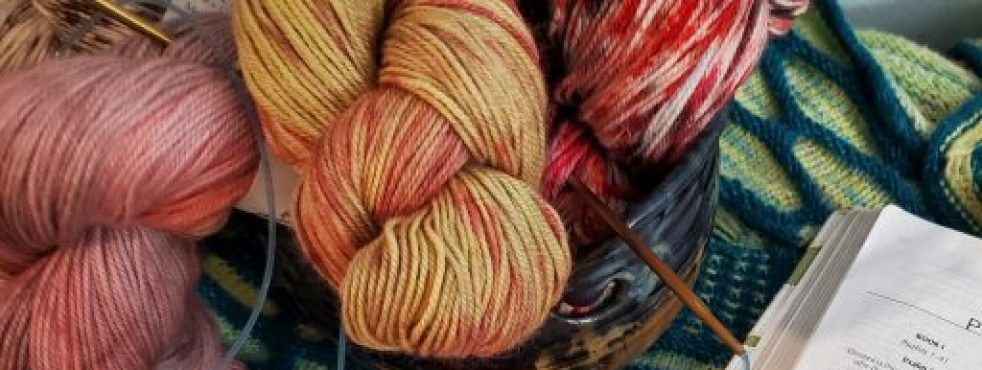Psalm 6 is another psalm “of David,” It is to the leader (the choir director). It is meant to be sung with stringed instruments, specifically “According to the Sheminith.” I don’t know for sure what that is. It is something to do with “eight” according to the one dictionary I looked at, possible for a specific eight-stringed instrument. Most just said it was a musical term. I wish I knew more about that, but I don’t. This psalm is often categorized as an individual lament, but I tend to think that a psalm written for the musical leader to perform with stringed instruments is meant somehow for community worship.

This psalm is beautifully written. It is full of synonymous parallel lines, starting with the first verse: “O Lord, do not rebuke me in your anger, or discipline me in your wrath.” The second and third verses are also synonymous parallels, but with some reordering. The reordering puts the emphasis are a different part in each line. Each line calls upon the Lord. Each line describes the psalmist’s condition. The first two lines are asking God to have mercy and heal, while the third line almost accuses God, but stops before the accusation is spoken.
Be gracious to me, O Lord, for I am languishing.
O Lord, heal me, for my bones are shaking with terror.
My soul also is struck with terror, while you, O Lord — how long? (v2-3)
I am weary with my moaning;
every night I flood my bed with tears.
I drench my couch with my weeping.
My eyes waste away because of grief;
they grow weak because of all my foes. (v6-7)
The psalmist is languishing; lacking spirit or interest or vitality; shaking with terror, in need of healing; suffering from intense grief. The metaphors pile on top of each other, helping to create this sense of desperate need for God to act. The psalmist is so emotional that things are left unsaid at the end of verse 3. While you, O Lord,…what? What is the Lord doing? Why isn’t he acting? How long will he let things stand this way?
Our society can be described like that right now. It’s been a year. A whole year of a pandemic. A pandemic that causes illness, that has people shaking with terror, and others languishing as they stay home. The pandemic has taken a toll on all of us. It has changed us. And after a year, I’m asking HOW LONG? How long will we have to remain socially distant? How long will we have to wear masks to visit? How long?
The psalmist asks God several things in this psalm.
- Don’t rebuke in anger, or discipline in wrath
- Be gracious
- Heal
- Turn and save my life
- Deliver me
Why should the Lord do these things? Two reasons: For the sake of your steadfast love is the first one. The second reason is: “For in death there is no remembrance of you; in Sheol, who can give you praise?” (v. 4-5) There isn’t a clear picture of heaven in the Old Testament, so often when we read passages that talk about death, it is treated simply as the end of life, with no thought to what comes after. We see this idea again in Psalm 30:9. “What profit is there in my death, if I go down to the Pit? Will the dust praise you? Will it tell of your faithfulness?” For the psalmist the point of life is to praise God. And death simply ends that possibility.
The Lord answers the psalmist’s prayer. In another burst of synonymous parallelism, the psalmist repeats that the Lord has heard him three times. “Depart from me all you workers of evil, for the Lord has heard the sound of my weeping. The Lord has heard my supplication; the Lord accepts my prayer.” (v8-9) The psalmist doesn’t say that the Lord answered all of his requests positively. He says the Lord has heard him. And for the psalmist that’s enough.
And then the psalmist closes the circle of the poem. In verse 10, he uses some of the same phrases that he used at the beginning, except they are applied to his enemies here. Now the enemies will be struck with terror instead of the psalmist. Instead of the Lord turning toward the psalmist, the enemies will turn back from the psalmist and be put to shame.
There is some theology in this psalm that I want to process with you, but I will leave that to another day. For now, meditate on this beautiful poem that God preserved for us. I find it surprisingly applicable this week as we remember what life looked like just over a year ago compared to today. And the fact that the Lord has heard the sounds of our weeping and our supplication and accepts our prayers gives me great hope, despite the circumstances of a world-wide pandemic.
May you be blessed by God’s word today.

